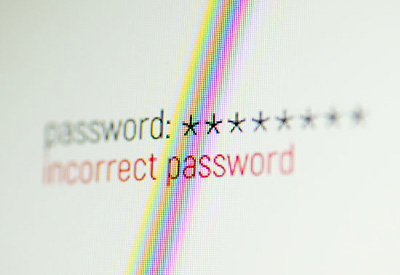In the realm of cryptocurrency, a single missing password or lost device can transform a digital fortune into an inaccessible void of ones and zeros. As cryptocurrency adoption grows among investors of all ages, the consequences of inadequate estate planning have become increasingly catastrophic. The world has witnessed several devastating cases since the pioneering launch of Bitcoin in 2009 in which improper cryptocurrency estate planning and storage blunders have left digital fortunes permanently inaccessible.
How do cryptocurrencies work?
Cryptocurrencies are digital assets that operate on blockchain technology – a decentralized digital ledger maintained by a global network of computers. Unlike traditional banking, cryptocurrencies don't rely on central institutions but instead use sophisticated cryptography for security and verification.
The system works through public and private keys. Think of a public key like an email address for receiving funds, while the private key acts as a super-secure password that proves ownership and authorizes transactions. These keys are managed by cryptocurrency wallets, which, despite their name, don't actually store currencies but rather manage the keys that prove ownership of funds recorded on the blockchain.
Storage methods fall into two categories: hot wallets and cold storage. Hot wallets stay connected to the internet for convenient access but face higher security risks. Cold storage keeps private keys completely offline through hardware devices, paper documents or offline computers, offering maximum security for large holdings – similar to keeping valuables in a bank vault rather than your pocket.
When someone makes a transaction, their wallet creates a signed digital message that broadcasts to the network. Special participants called miners verify transactions by solving complex mathematical puzzles. Once verified, transactions become permanent blockchain entries. This permanence, combined with the fact that lost private keys mean permanently lost access to funds, makes proper security and estate planning crucial for cryptocurrency owners.
What can go wrong when an estate plan fails to address cryptocurrencies?

A notorious cryptocurrency estate planning disaster unfolded with the collapse of QuadrigaCX, considered to be Canada's largest cryptocurrency exchange at the time, in 2019. The catastrophe began when Gerald Cotten, the exchange's 30-year-old founder and CEO, allegedly died suddenly during his honeymoon in India. What followed exposed the consequences of decentralized control and inadequate succession planning in the cryptocurrency world.
According to a coindesk.com investigative report, Cotten had maintained exclusive control of nearly $190 million in customer cryptocurrencies and fiat money stored in the exchange's cold wallets. His sudden death meant these digital assets became effectively inaccessible, as he was the only person who possessed the necessary passwords and encryption keys. The situation grew increasingly suspicious as investigations revealed that Cotten had been operating QuadrigaCX with virtually no oversight, maintaining no formal books and freely mixing personal and company funds. The saga become the subject of a Netflix documentary.
What made the QuadrigaCX disaster particularly alarming was its far-reaching impact on thousands of ordinary investors who had trusted the exchange with their life savings. The absence of proper business continuity planning and the concentration of control in a single individual led to a cascading failure that highlights vulnerabilities of cryptocurrency investments.
What happens to cryptocurrency when someone dies?
When cryptocurrency owners die without leaving proper instructions or access information, their digital assets can become permanently trapped in an inaccessible digital void. This technological barrier has created numerous heartbreaking situations where substantial cryptocurrency fortunes have vanished forever.
The tragic case of Matthew Mellon, a banking heir and cryptocurrency pioneer, illustrates this problem in stark detail. When Mellon died unexpectedly in 2018, he left behind an estimated $500 million in XRP tokens. Despite his massive wealth, Mellon's extreme approach to security proved catastrophic for his estate. He had distributed his private keys across multiple cold wallets, hiding them in various locations under false names. This secretive approach, while potentially secure against theft, created an almost impossible puzzle for his heirs to solve. Years later, much of his cryptocurrency fortune remained inaccessible, locked away in digital wallets that his family could not reach.


Why is traditional estate planning insufficient for cryptocurrency assets?

The unique nature of cryptocurrency ownership presents challenges that traditional estate planning methods simply weren't designed to address. This limitation became painfully clear in the case of Matthew Moody, an early cryptocurrency miner who died at age 26 in a plane crash in 2013. Despite leaving behind millions in cryptocurrency stored on his laptop, Moody's family faced insurmountable technical barriers. Traditional estate planning documents gave them legal rights to his assets but provided no practical means to access them. The combination of encryption, missing passwords and the family's limited technical knowledge created an impenetrable barrier between them and their inheritance.
What happens if you can’t find your cryptocurrency wallet?
Perhaps no story better illustrates the devastating permanence of cryptocurrency loss than the case of James Howells, a Welsh IT worker who accidentally discarded a hard drive in 2013 containing a Bitcoin wallet with 8,000 coins he obtained in 2009, according to a BBC report. They were worth pennies apiece at the time. Despite years of Howells offering substantial rewards and later suing local authorities to allow him to search the landfill where his cold wallet was discarded, the drive remained buried in tons of garbage. As cryptocurrency values soared over the years, the magnitude of this loss had grown to hundreds of millions of dollars. Howells' story serves as a stark reminder that cryptocurrency assets can be permanently lost through carelessness.
How can you protect your cryptocurrency assets through estate planning?

A comprehensive cryptocurrency estate plan should encompass several crucial elements to ensure the secure transfer of digital assets. First and foremost, it must include a detailed inventory of all cryptocurrency holdings, including wallet addresses and types of currencies owned. This inventory should be regularly updated to reflect the volatile nature of these assets.
The plan should also provide secure methods for storing and transmitting access information, such as private keys and passwords. This can be achieved through digital legacy services or secure physical storage options such as safety deposit boxes or home safes. It's essential to include clear, step-by-step instructions on how to access and transfer the digital assets.
Conclusion
Catastrophic failures in cryptocurrency estate planning serve as powerful warnings about the importance of comprehensive digital asset protection. By learning from these disasters and implementing thorough estate planning strategies that address the unique challenges of cryptocurrency, investors can better secure their digital legacy for future generations. The time to act is now – before unexpected events make it impossible to communicate crucial access information to loved ones.



